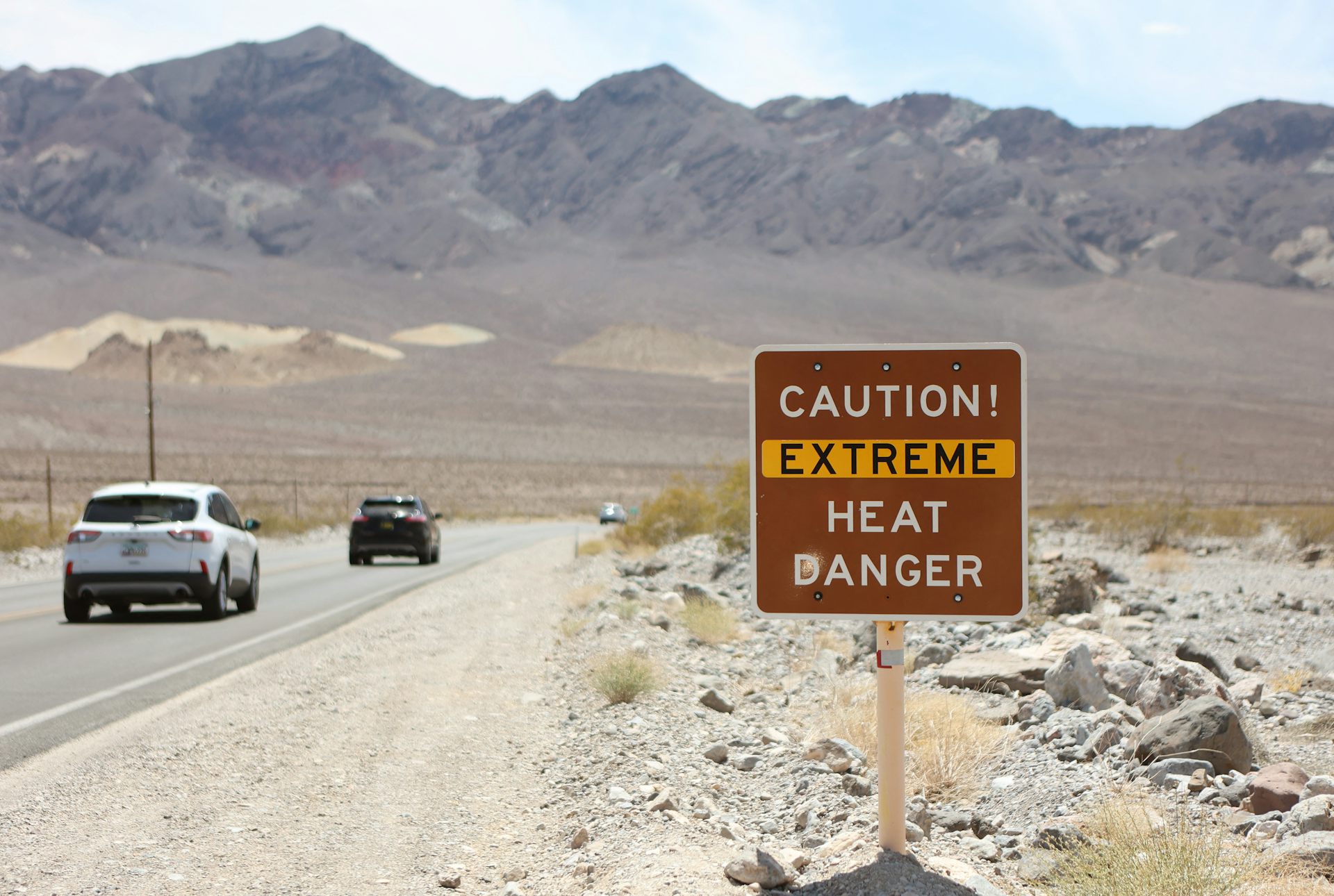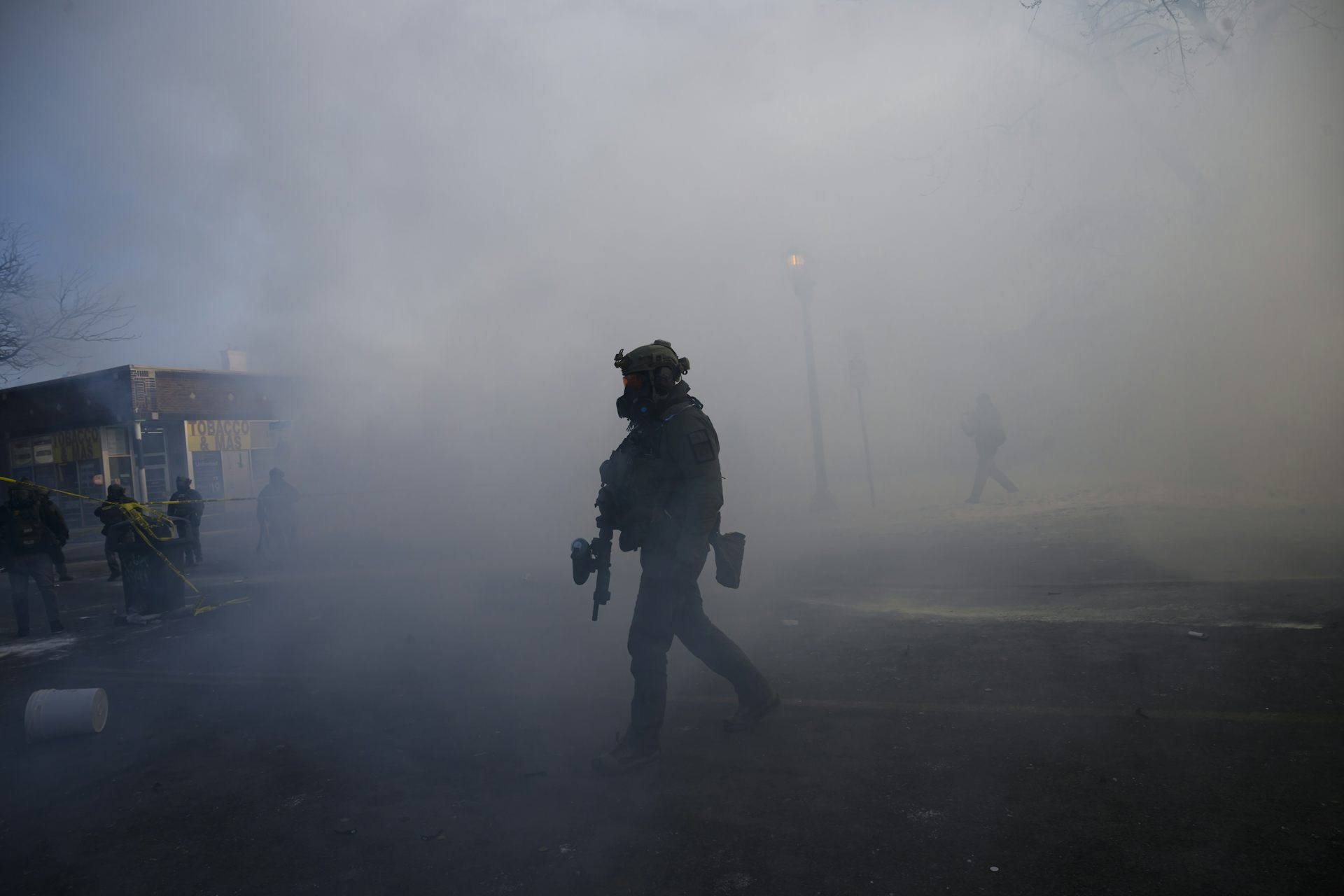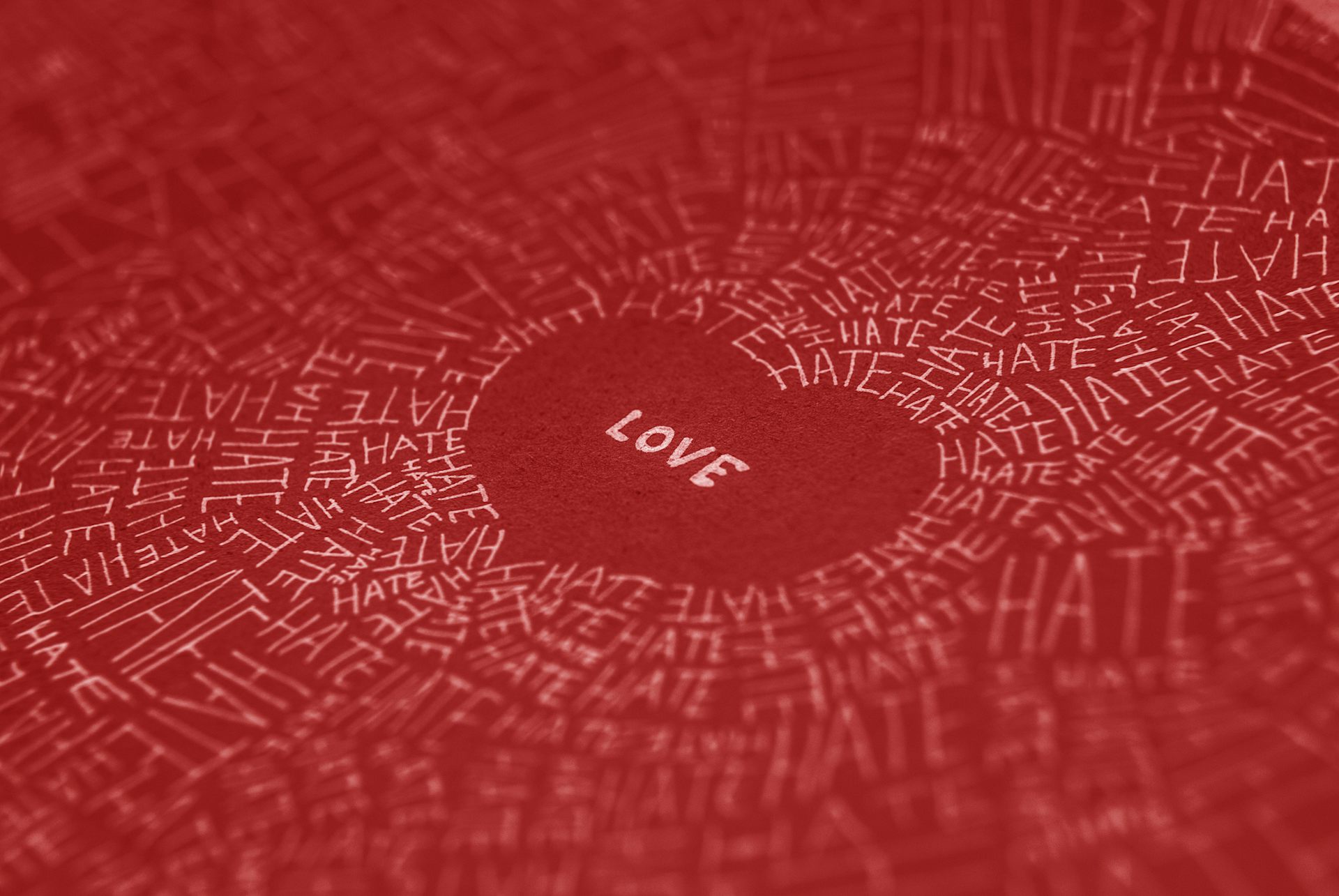María Corina Machado’s peace prize follows Nobel tradition of awarding recipients for complex reason
Venezuelan opposition leader is the latest in a long list of controversial laureates.
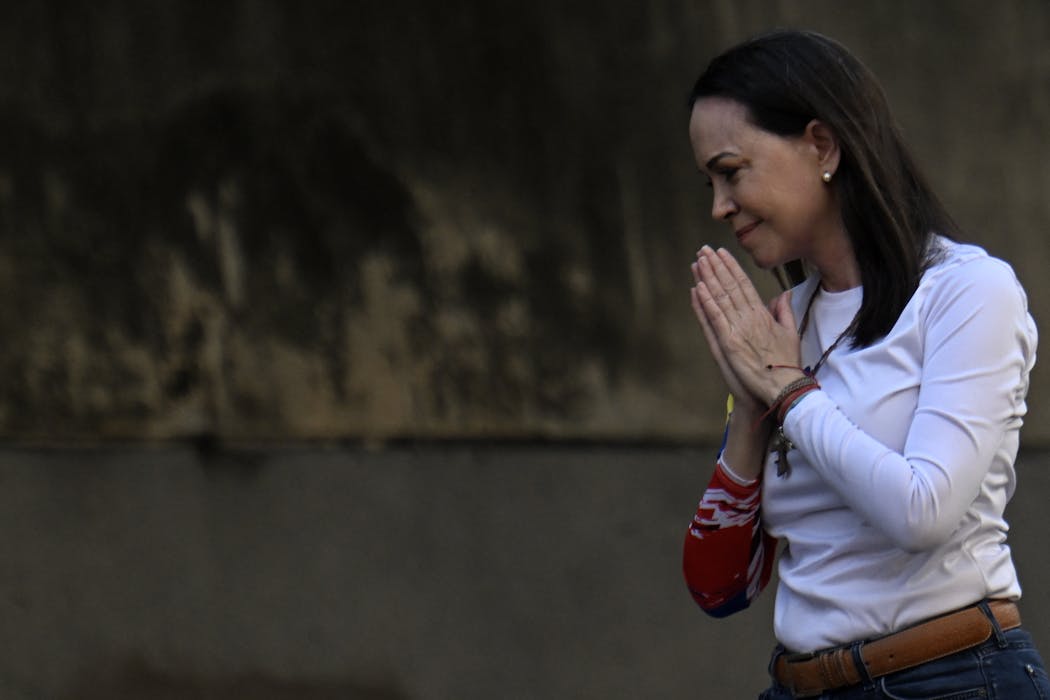
Few can doubt the courage María Corina Machado has shown in fighting for a return to democracy in Venezuela.
The 58-year-old politician and activist is the undisputed leader of the opposition to Nicolás Maduro – a man widely seen as a dictator who has taken Venezuela down the path of repression, human rights violations and increasing poverty since becoming president in 2013.
Maduro is widely believed to have lost the 2024 presidential election to rival Edmundo González, a candidate substituting Machado, yet still claimed victory.
Machado has been in hiding since the fraudulent vote. And her courage in having participated in an unfair contest and in exposing Maduro’s fraud by publishing the true vote tallies on the internet, surely made Machado stand out to the Nobel committee.
Indeed, in making Machado the 2025 recipient of the Nobel Peace Prize, organizers stated they were recognizing her “tireless work promoting democratic rights for the people of Venezuela and for her struggle to achieve a just and peaceful transition from dictatorship to democracy.”
But as a scholar of Venezuela’s political process, I know that is only part of the story. Machado is in many ways a controversial pick, less a peace activist than a political operator willing to use some of the trade’s dark arts for the greater democratic good.
Joining a controversial list of laureates
Of course, many Nobel Peace Prize awards generate controversy.
It has often been bestowed on great politicians over activists. And sometimes the prize’s winners can have complex pasts and very non-peaceful resumes.
Past recipients include Henry Kissinger, who as U.S. secretary of state and Richard Nixon’s security adviser was responsible for the illegal bombing of Cambodia, supporting Indonesia’s brutal invasion of East Timor and propping up dictators in Latin America, among many other morally dubious actions. Similarly, former Palestinian Liberation Organization leader Yasser Arafat and Israeli Prime Minister Menachem Begin were both awarded the prize, in 1994 and 1978 respectively, despite their past association with violent activities in the Middle East.
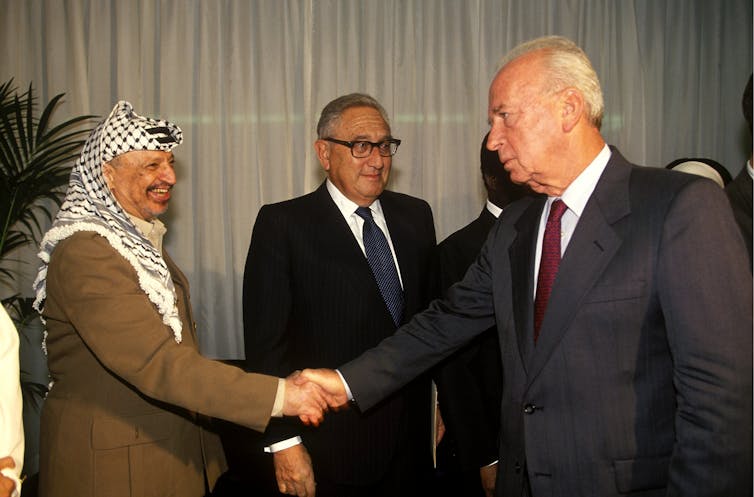
The Nobel Committee often seems to use these awards not to celebrate past achievements but to affect the future course of events. The nods to Begin and Arafat were, in this way, used for encouragement of the Middle East peace process.
In fact, sometimes, the peace prize is seemingly bestowed as a sign of approval for a break from the past.
Barack Obama won his in 2009 despite only being nine months into his presidency. It was taken by many as a rejection of the previous presidency of George W. Bush, rather than recognition of Obama’s limited achievements at that time.
In 2016, Colombian President Juan Manuel Santos was awarded the Nobel Peace Prize just days after his peace plan was rejected in a referendum. In that instance, the committee seemed to want to give his efforts a push just after a major setback.
Democratic path or dark arts?
So what should be made of the Nobel Peace Prize committee’s decision to recognize opposition to Maduro now?
Certainly Machado’s profile is ascendant. In her political career, she has participated in elections – winning a seat in the National Assembly in 2010 – but boycotted many more. She also boycotted negotiation processes, suggesting instead that foreign intervention was the only way to remove Maduro.
In 2023 she returned to the electoral path and steadfastly mobilized the Venezuelan population for opposition primaries and presidential elections, even after her candidacy was disqualified by the government-controlled electoral authority, and innumerable other obstacles were put in her path.
The campaign included spearheading caravans and events across the country at significant personal risk.
However, much of her fight since then has been via less-democratic means.
Machado has shunned local and regional elections suggesting there was no sense in participating until the government honored the results of the 2024 presidential election. She has also again sought international intervention to remove Maduro.
Over the past year she has aggressively promoted the discredited theory that Maduro is in control of the Tren de Aragua gang and is using it to invade the United States – a narrative gladly accepted and repurposed by U.S. President Donald Trump.
In addition to being the expressed motivation for a U.S. military buildup off the coasts of Venezuela, this theory has also been the central justification cited by the Trump administration for using the Alien Enemies Act to deport, without due process, 238 Venezuelan men to a horrific prison in El Salvador.
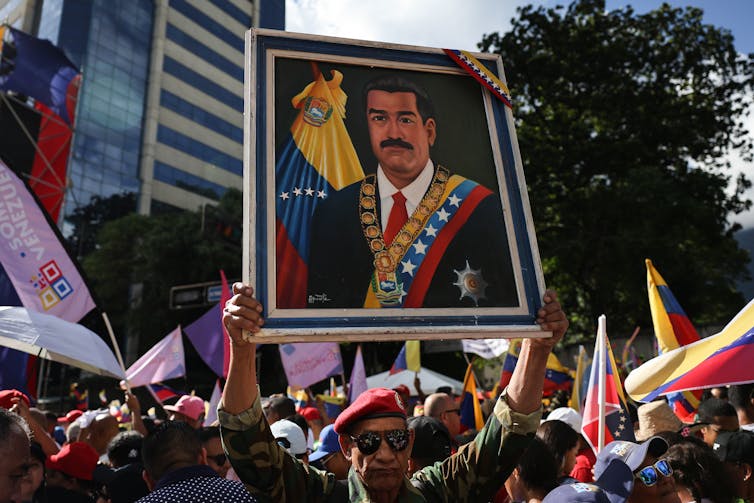
Relations with Trump
The Nobel Peace Prize could help unify the Venezuelan opposition movement, which over the past year has begun to fray over differences in strategy, especially with respect to Machado’s return to electoral boycotts.
And it will certainly draw more international attention to Venezuelans’ struggle for democracy and could galvanize international stakeholders to push for change.
What it will mean in terms of Trump’s relationship to Machado and Venezuela is yet to be seen. Her main connection with the administration is through Secretary of State Marco Rubio, who has aggressively represented her views and is pushing for U.S. military intervention to depose Maduro
Awarding Machado the prize could strengthen Trump’s resolve to seek regime change in Venezuela. Or, if he feels snubbed by the Nobel committee after very vocally lobbying to be awarded the peace prize himself, it could be a wedge between the U.S. president and Machado.
Machado seems to understand this. After not mentioning him in her first statement after the award was announced, she has since mentioned him multiple times, even dedicating the prize to both the Venezuelan people and Trump.
Trump has subsequently called to congratulate her.
A game changer? Perhaps not
To the degree that the Nobel Peace Prize is not just a model of change but a model for change, the decision to award it to Machado could conceivably affect the nature of Venezuela’s struggle against authoritarianism, leading her to continue to seek the restoration of democracy with a greater focus on reconciliation and coexistence among all Venezuelans, including the still politically relevant followers of the late Hugo Chávez.
Whatever the impact, it probably will not be game-changing. As we have seen with other winners, the initial glow of public recognition is quickly consumed by political conflict.
And in Venezuela, there is no easy way to translate this prize into real democratic progress.
While Machado and other Venezuelan democrats may have more support than ever among global democrats, Nicolás Maduro controls all of Venezuela’s institutions including the armed forces and the state oil company, which, even when sanctioned, provides substantial resources. Maduro also has forged strategic alliances with China, Russia and Iran.
The only way one can imagine the restoration of democracy in Venezuela, with or without military action, is through an extensive process of negotiation, reconciliation, disarmament and justice that could lay the groundwork for coexistence. This Nobel Peace Prize could position Machado for this task.
David Smilde does not work for, consult, own shares in or receive funding from any company or organization that would benefit from this article, and has disclosed no relevant affiliations beyond their academic appointment.
Read These Next
Trump says climate change doesn’t endanger public health – evidence shows it does, from extreme heat
Climate change is making people sicker and more vulnerable to disease. Erasing the federal endangerment…
FDA rejects Moderna’s mRNA flu vaccine application - for reasons with no basis in the law
The move signals an escalation in the agency’s efforts to interfere with established procedures for…
How the 9/11 terrorist attacks shaped ICE’s immigration strategy
The growth of today’s aggressive immigration tactics traces back 25 years, when enforcement took on…


